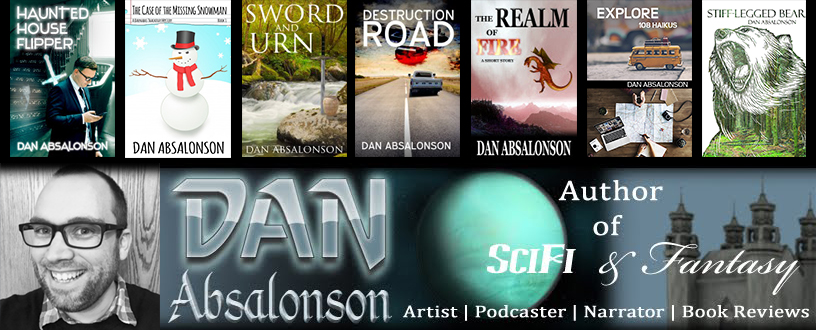Dan’s Editing Process
1. The Story as a Whole
- Read it out loud, you'll catch things you wouldn't be simply reading through it.
- Everything Make Sense?
- Any plot holes?
- Protagonist go through a change? Character Arc?
- Problems too easily solved?
- Each scene, character moving the story forward?
- Anything boring, or slowing the story down?
- Challenges have a strong enough conflict?
- Any fluff that’s not adding to the story? Kill your darlings!
2. Breaking It Down Into Scenes
- Break story into individual scenes, treating each scene as it's own story, does it work?
- Characters acting believably to who they are?
- Show don’t tell
- No grocery list descriptions
3. Line Editing
- Work from the last sentence to the first sentence in the last paragraph, read sentence to sentence then the full paragraph, all the way to the beginning.
- Editing Checklist: Spelling
- Spell check has been run.
- "It's" and "its" have been used correctly ("it's" is a contraction for "it is"; "its" is possessive).
- All other homonyms -- which spell check would not catch -- have been checked. (For example, you wouldn't want to write: "She peaked through the blinds and saw the peek of Mt. Ampersand.")
- Editing Checklist: Grammar
- Dialogue is punctuated correctly.
- Any run-ons or fragments are intentional (and even those are rare).
- Subjects and verbs agree in number, and verb tenses are consistent throughout.
- Commas have been used correctly.
- "That" and "which" have been used correctly.
- There are no unclear or confusing pronoun references.
- Sentence structure varies in descriptive or expository passages. (Keep your reader interested.)
- The sentences are concise.
- Consideration has been given to word choice. (This means you have consulted a thesaurus.)
- Basic facts have been checked (especially ones that would be embarrassing to get wrong).
4. Get Feedback
- Use what you think is good advice, it’s still your book
- Don’t get offended, use feedback, and thank them for it, they read it!

No comments:
Post a Comment